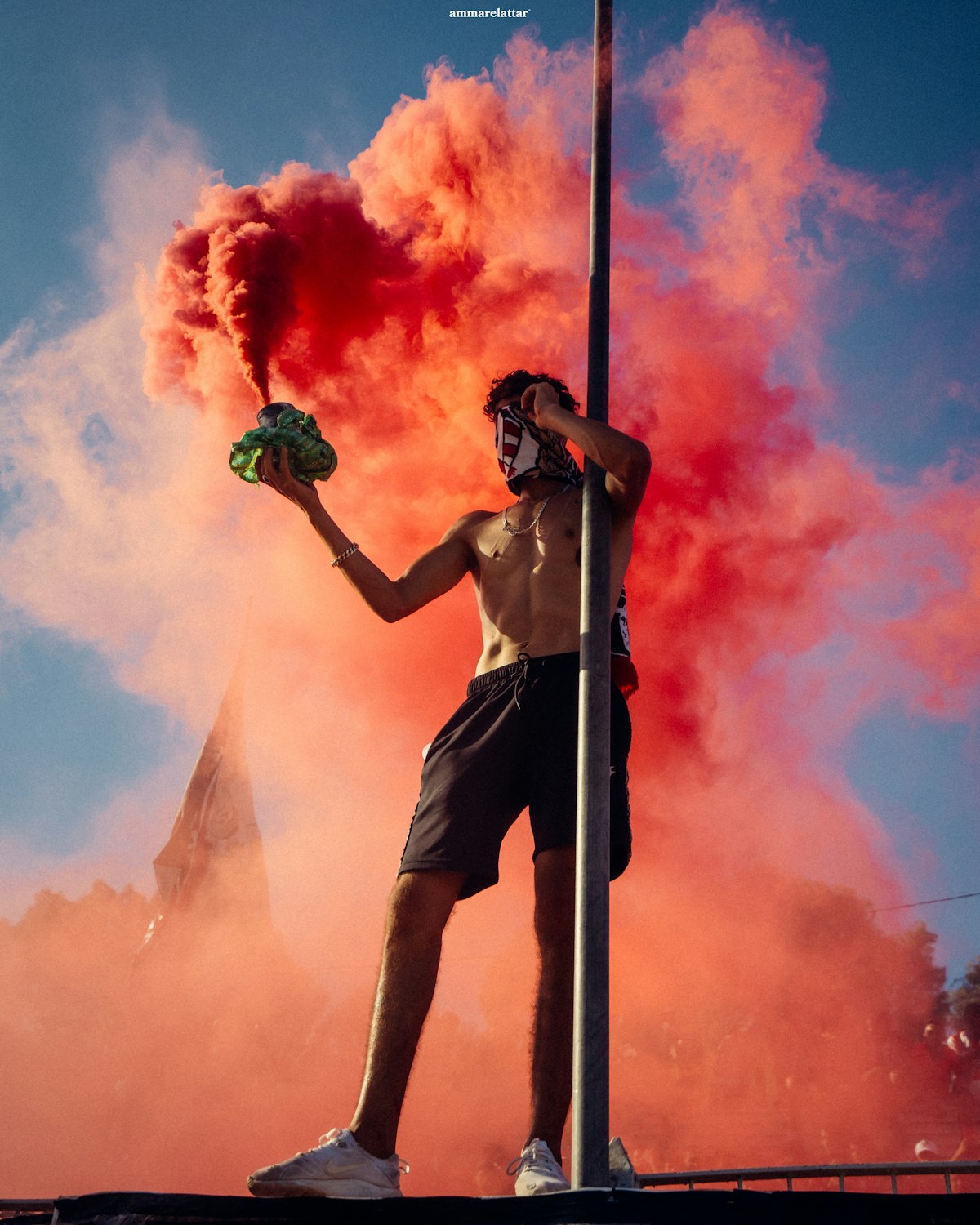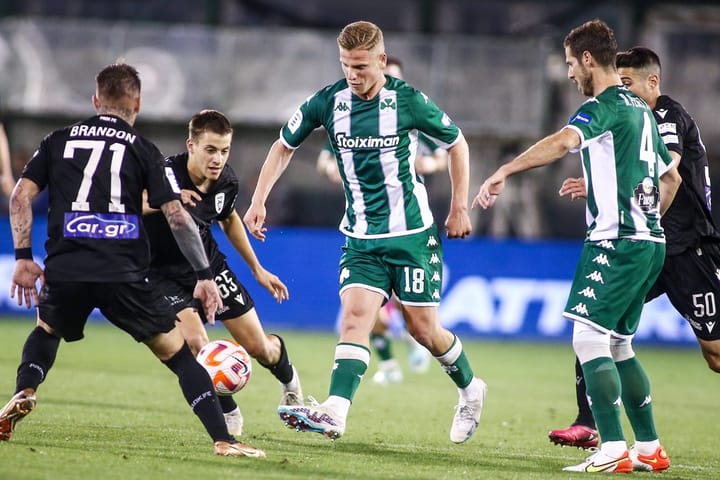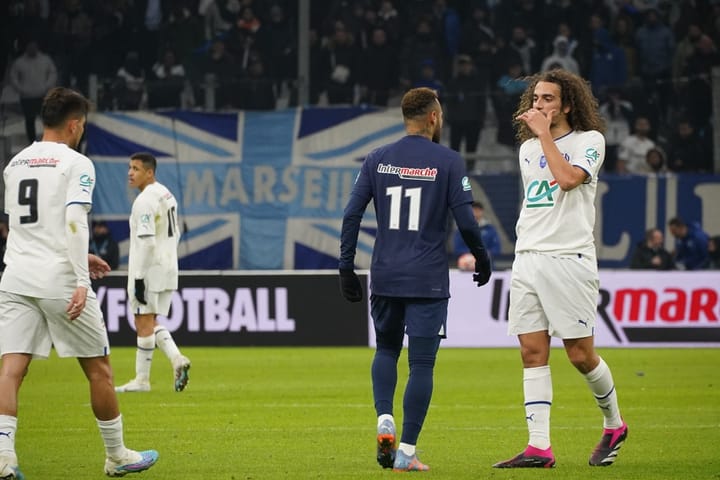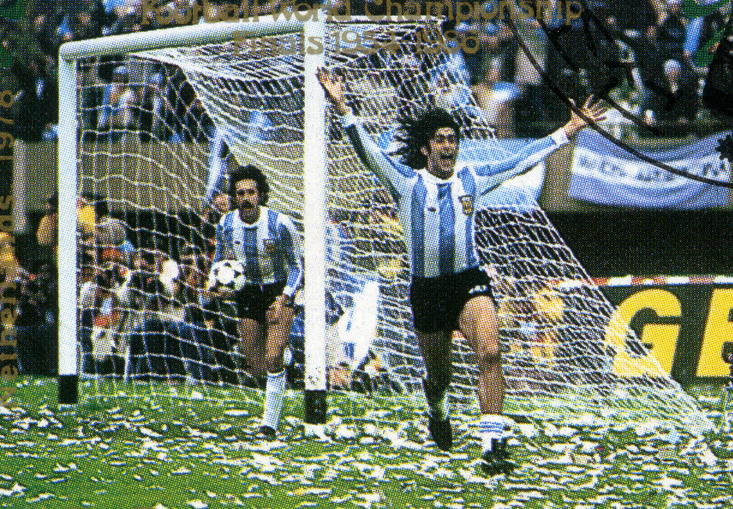Morocco’s World Cup journey 2022, captured by The Athletic
Morocco loves soccer. But there's a huge difference between club pride and affection for the national team. The Athletic wrote a masterpiece.

Morocco is known for its exciting soccer culture. The atmosphere is electric. Each game is accompanied by fireworks and club songs that fans passionately perform. Supporters wave flags as if their lives depended on it and quickly pray to Allah, even in the stands. Every blessing is welcome. The way fans support their teams is awesome to witness, especially when riots do not occur.
The game of pride and honor in the club stadiums of Casablanca and Marakech during regular games cannot be compared to the atmosphere surrounding Moroccan team matches. At these majestic moments, the lines close and cultural and family values take centre stage.
Morocco's trip to the 2022 World Cup in Qatar is proof of that. One of the best stories of this tournament was chronicled by Jay Harris and Jacob Whitehead, two reporters from The Athletic.
The article is one of the reasons Root4Soccer was created. On this platform, we want to zoom in on global soccer cultures. Each country has its own habits and ways of believing. At the World Cup they all come together. In 2026, the United States, Canada and Mexico will host the spectacular soccer event. To already get into the mood, we offer you the story in The Athletic one more time.
Have fun!

The curtains at the front of the Wyndham hotel in Doha’s West Bay have been drawn shut.
There are security guards stationed at every entrance while metal barriers block any vehicles from gaining access. On the opposite side of the street, television cameras zoom in on the lobby searching for the footballers who have united their country and the continent of Africa.
The Gate Mall is located just around the corner and there is a collection of coffee shops, restaurants and patisseries nearby. Moroccan supporters spend hours drinking tea and gorging on an assortment of treats as they try to catch a glimpse of their heroes.
Walid Regragui’s squad have been based in the West Bay for the entire World Cup. The Wyndham hotel remains open to members of the public but they are restricted from going into certain areas and have to sneak in and out through the back door.
You can still make a reservation for lunch at the plush restaurant on the second floor but do not get your hopes up about bumping into goalkeeper Yassine Bounou or star striker Youssef En-Nesyri loading up their plates — they are based in a completely separate part of the building.
There have been examples at previous tournaments of this isolation having a negative impact on a team’s performance, but there is one crucial difference here. Morocco’s players and coaching staff have been accompanied by their family and friends throughout.

Bounou with his son on the pitch after a game (Photo: Alexander Hassenstein/Getty Images)
It has created an environment that has enabled them to thrive. Regragui and Fouzi Lekjaa, the president of the Royal Moroccan Football Federation (FMRF), made the decision to allow the players to bring their relatives to Qatar on an all-expenses-paid trip.
One of the most enduring images of the tournament will be Sofiane Boufal dancing with his mother on the pitch after Morocco’s 1-0 victory over Portugal in the quarter-finals.
Achraf Hakimi had found his mother in the crowd after they beat Belgium and these small moments encapsulate why it was such a wise move to keep everybody based at the same hotel.
This togetherness will be crucial as they attempt to defeat the reigning champions France and create more history by becoming the first African side to reach a World Cup final.
“My parents and my wife have come,” said midfielder Ilias Chair, who plays for Queens Park Rangers in the Championship, before the semi-final.
“All of the other players have their parents and families here. It’s given us great strength and I hope it continues. If you look at the films and videos of players after the game with their parents, it’s fantastic. You see people with tears in their eyes.”
During his playing career, Regragui bounced between different French clubs, including Toulouse, Ajaccio and Grenoble, and spent two years with Spanish side Racing Santander.
However, his mother, Fatima, had never watched him play for or coach a team outside of Paris, which is where he was born and raised, until the World Cup. The 47-year-old celebrated beating Portugal by rushing to her in the stands.
“What’s important for us, focusing on football again, is that we represent Morocco, so we have an image of the country that we want to spread around the world,” Regragui said. “The World Cup is the best shop window and it’s a chance to show how close our players are to their families, that’s our culture.
“It’s important to show how close the players are to their wives and a lot of people don’t understand it. Yes, we represent the African world and that’s important to an extent, but we represent the Moroccan way of life.”
Royal Air Maroc has put on extra flights from Casablanca to help as many supporters as possible reach Qatar for the semi-final against France.
Mouna Benqlilou co-owns a feminist dance company called Ichtar in Casablanca and she gives The Athletic a deeper insight into the players’ relationship with their families.
“Today everyone is talking about this country and it’s amazing because people are talking in a positive way,” Benqlilou says. “That is something that has touched me a lot. It’s about the values that Morocco has. People notice the fact that these men are footballers hugging their mothers.
“We are born in a country where we tell you how family is important, how we have to be reliant on one another. And we grew up like this. For example, I worked for 10 years in Paris. I left Morocco when I was 18. I met my husband, had a great job and everything there. But I couldn’t imagine that I spend the rest of my life far away from my family. I told my husband, he’s totally French, it’s Morocco or it’s nothing. He came with me here and we started over our life. My dad was a little bit ill, my mom is alone. So it was inconceivable that I wouldn’t come back.
“Everyone here is like this. We don’t have retirement homes here. It doesn’t exist in the local culture because people take care of their parents. And they know that when they will be old, their child will take care of them. And there is a lot of love. The Moroccan mother entrusts everything in her child.”

Regargui with family after the win over Portugal (Photo: Alexander Hassenstein/Getty Images)
Khalid Naama is from Morocco but has lived in Doha for the past six months. He started queuing at 2am on Tuesday morning outside the Al Janoub Stadium for the chance to get semi-final tickets. They were due to be released at 10am but there were delays which caused frustration among the thousands of supporters who turned up. Naama managed to secure a ticket shortly after midday and says “it means the world”.
“The semi-final is not something you will be a part of every four years,” Naama tells The Athletic. “The only achievement we did as a national team before was in 1986 when we reached the round of 16 (and lost 1-0 to West Germany). Our dads keep reminding us, but now we are here and witnessing something more historic and we will tell it to our children.”
Naama recognises and touches upon the special connection between the players and their families, too. “Most of the players have been raised in Europe and in other countries, but you never forget where you are from,” he says.
“They always come back to Morocco and they still have their Moroccan roots. Your family is all you’ve got and when you’re starting your career, there is no one there, only your family. When you succeed, you have to celebrate first with your family.”
One of the key reasons for the strong bond within the camp is that Regragui is the first Moroccan in charge of the national team since Ezzaki Badou in 2o16.
“(Regragui’s) just a regular Moroccan guy who came in three months before (the World Cup). But the standards have been raised — it’s only the beginning,” Moroccan television pundit Toufik Senhaji says.
“A great percentage of the population were happy, were asking for Regragui. They knew him because he was the ex-coach of Wydad. Wydad won the African Champions League (in May), so they knew his management style. Some were hesitant, but they didn’t say anything bad at the end.
“When he coached Fath (FUS Rabat) he used to make life very difficult for the Casablanca teams. He made a lot of statements during that time, especially about Raja Casablanca. So then, because of his hair, the nickname Avocado Head came from the Raja fans.
“Regragui has mentioned since his first game against Croatia, he said we need to change the mentality, we need to change the mindset in Africa, to believe we can win the competition. But he also said he was proud to have five African teams in this World Cup, all five with African coaches, and this is very important.”
Regragui has succeeded in changing the mindset. If Morocco go one step further, then you can guarantee their families will be at the heart of it.





